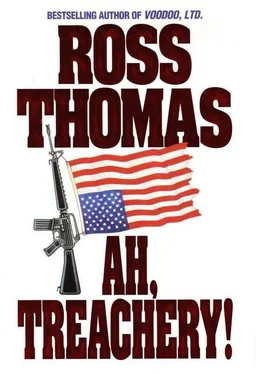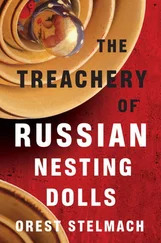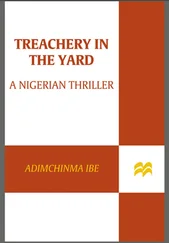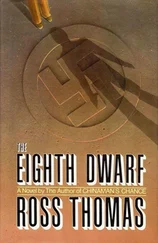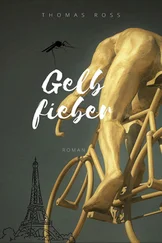“You look awful,” Winfield said.
“I know how I look,” Viar said. “But that doesn’t mean I give a shit.” He pointed his big chin at the sack of Scotch that rested on a chrome and glass coffee table. “You ever gonna uncap that?”
Winfield removed the bottle from the sack, the cap from the bottle and asked, “Should we use glasses?”
“You want ice, too?”
“You already asked that and I said no. But I would like some water.”
Viar turned, hurried through the dining room and into the kitchen. He was back moments later, carrying a glass pitcher of water in one hand and two mismatched tumblers in the other. After he set everything down, he watched carefully as the General poured generous measures into both glasses and added water to one of them.
“We going to drink or just sip?” Viar said.
Winfield added another ounce or so to his host’s glass. The tall man bent over, picked it up, drank nearly half of the straight Scotch, came close to smacking his lips, but instead lit an unfiltered Pall Mall with a kitchen match. He then lowered himself into an easy chair (circa 1967, Winfield thought), put his feet up on its ottoman and said, “No lectures.”
“No lectures,” Winfield agreed, sat down on a cat-clawed couch that needed slipcovers and resumed his inspection of Viar, noting the frayed button-down blue shirt, chino pants and brown loafers. The pants and shirt, neither clean nor soiled, looked as if they might have been slept in. The loafers looked expensive but neglected.
Winfield’s inspection seemed to amuse Viar, who smiled and said, “Some days I don’t get dressed at all — just sit around in my under-drawers. Disgusting, isn’t it?”
Instead of agreeing or disagreeing, the General said, “Let’s talk about nineteen-eighty-nine.”
“Why not nineteen-sixty-eight? That was another swell year.”
“I prefer ’eighty-nine.”
“What if I say go fuck yourself?”
“Then I’ll use blackmail.”
“That same old Panama crap? I don’t think so.”
“It might not land you in Leavenworth, Hank, but it’ll certainly end your pension.”
Viar thought for a moment, then smiled sourly and said, “I’ve wondered why you and that wacko outfit of yours hadn’t already used it. The Panama stuff. Then I figured it out. It’s because of Shawnee. You don’t wanta do anything that’d hurt Violet’s kid.”
“She’s also yours.”
“You always had a yen for Violet, didn’t you?” Viar said, then leered and asked, “Ever get anywhere?”
The General rose, feeling both ridiculous and determined. “You want to keep your pension or not?”
“Sit down, goddamnit.”
The General resumed his seat on the couch, picked up his drink, tasted it, put it back down, examined Viar for a few seconds and said, “Toward the end of nineteen-eighty-nine, during the month of November, you were in El Salvador.”
“So?”
“Doing what?”
“I was agency liaison with Salvadoran intelligence — with the DNI or, auf Englisch , the National Intelligence Directorate. What I was really doing was loafing my way toward the end of a long and distinguished career, my last role being that of an aging GS-16 bagman.”
“Was there a large payoff during the first two weeks of November?”
Viar smiled. “So that’s it?”
“That’s it,” Winfield said. “Was there?”
“Maybe.”
“Who got it?”
“Like I said, I was merely liaison to Salvadoran intelligence.”
“Who got the money, Hank?”
“The fucking Atlacatl battalion eventually got it, who else?”
“You handed over the money to U.S. Army advisers, who then gave it to the Atlacatl battalion?”
Viar only nodded and drank more whisky.
“How much?” the general asked.
“The battalion wanted five million but we gave ’em less than half, which is about what they expected. Two-point-four million dollars.”
“For the time, was that a large, medium or small amount?”
“Well, since Washington had already sunk about four billion into that mess, it wasn’t significant money — except to those who divvied it up.”
“What were the mechanics of the transfer?”
“Be more specific,” Viar said and drank the rest of his whisky.
“What was the money actually carried in?”
“A great big old gray Deutsche Post mailbag. A real monster. Sealed.”
“How was it sealed?”
“With a quarter-inch wire cable and a big glob of solder. The seal itself was a steel engraving of Mickey Mouse pressed into the solder. A generous nation’s little joke.”
Winfield picked up the Scotch bottle, went over to Viar and poured him another ounce or so. Once back on the couch, the General asked, “Why a German mailbag?”
“Because if it fell off a truck, we could blame it on the Krauts.” He smiled slightly. “Another joke. The bag was just handy. That’s all.”
“You picked up the money where?”
“The embassy. Where else could Langley pouch it to?”
“Then?”
“Then I went to see our Army guys, the advisers who’d make the payoff to the Atlacatl brass.”
“Who were our Army guys?”
“A colonel and a captain.”
“You gave them the money?”
Viar nodded.
“Then what?”
“Then the three of us counted it.”
“And after that?”
“After that they call in a major — a guy with good Spanish — who’ll make the delivery. They tell him what they want him to do and he says swell. Then he asks how much is in the bag and they say two-point-four million. He says fine, let’s count it. The Colonel tells him it’s already counted. Not in my presence, the Major says, then respectfully requests, in the interest of what he calls fairness and accuracy, that we count the fucking money again. So we did. The four of us.”
“Then what?”
“Then we put it back in the German mailbag and seal it back up with wire, solder and Mickey Mouse. After that, we watch the Colonel tuck it away for the night in his big safe — all this in the presence of Major Doubting Thomas.”
“Go on,” Winfield said.
“The next morning the Colonel and the Captain open the safe and hand the bag over to the Major, who checks the seal, then delivers the money to his contact, a young captain in the Atlacatl battalion.”
“You remember the date of the delivery?”
“November sixth.”
“Go on.”
“Well, the Atlacatl Captain delivers the bag to his Colonel. Together, they open it up. Guess what? Half the money — one-point-two million’s gone south. But to make the bag feel and weigh right, somebody’s added a lot of carefully cut-up packets of newspapers, all nicely wrapped with rubber bands. The Colonel goes ape shit, of course, and screams and yells at the Captain, who’s a real little guy. Then the Colonel beats up on him for a while, gets tired of that and demands the name of the piece of American shit who gave the Captain the money. The Captain names our American Major.”
“What happened then?”
“What happened then was I get a call from a friend of mine in the DNI—”
“Their intelligence outfit.”
“The same. And he’s really pissed off. The little Salvadoran Captain’s with him, pretty banged up by now, and my friend’s demanding the name, rank and serial numbers of all the North Americans involved. So I name names. Then I call the American Colonel and say I want a crash meeting with him, the Major and the Captain. But I won’t say why.”
“What a duplicitous mind you have,” the General said.
Viar nodded in happy agreement. “Just covering my ass.” He paused to light another cigarette and drink more whisky before continuing. “Well, when I arrive, they’re all three there — the Colonel, the Major and the Captain. So I deliver what I like to think of as a terse, factual report on how half the money’s been stolen. Then I sit back and watch.”
Читать дальше
